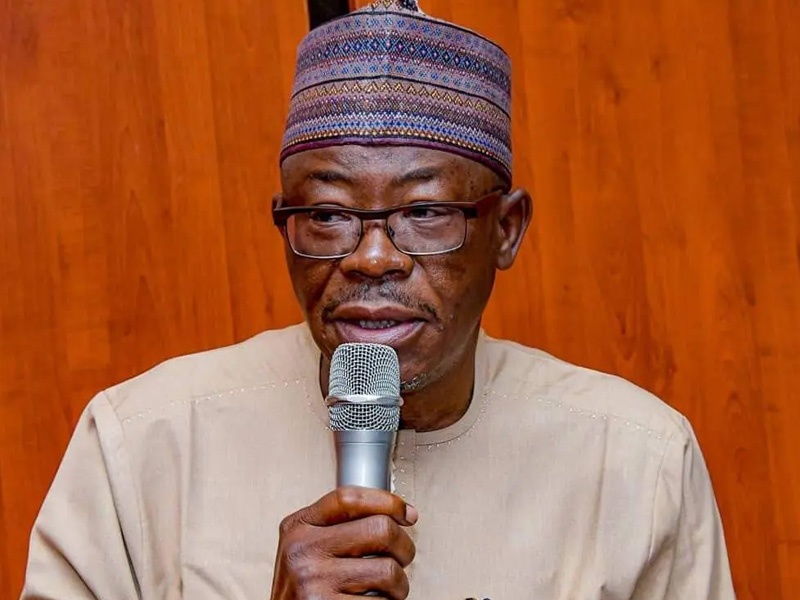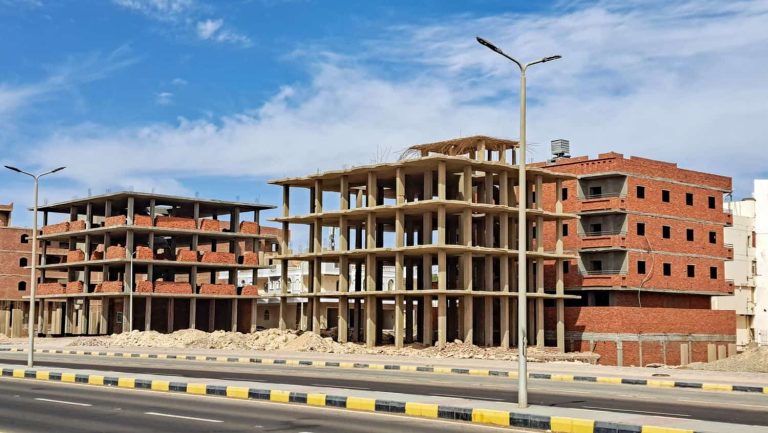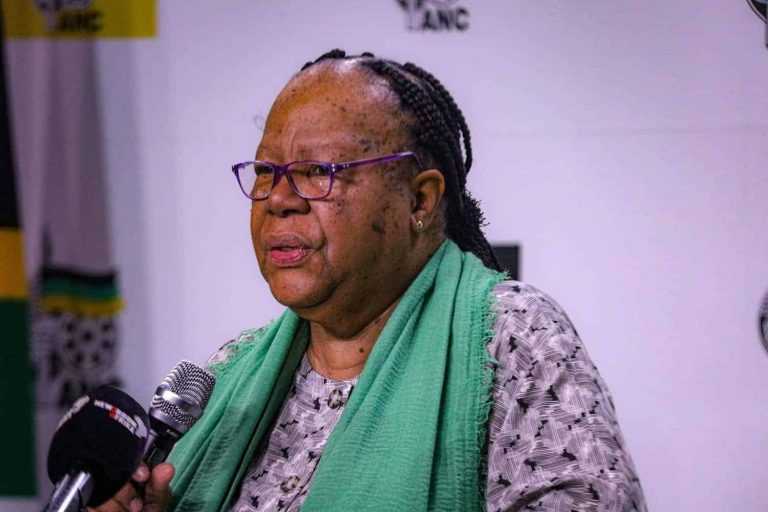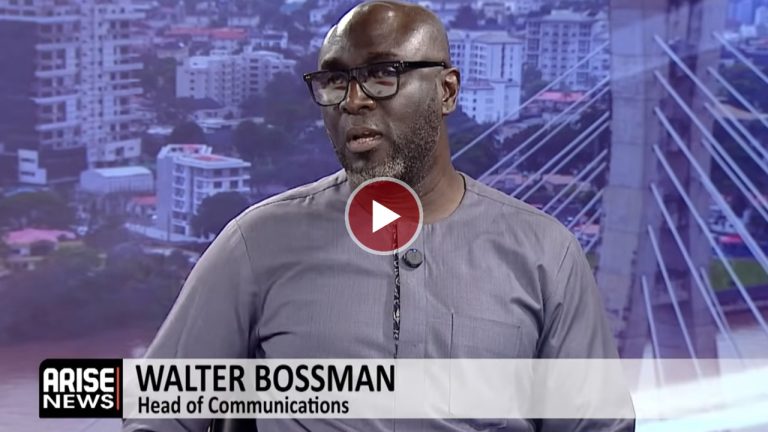
The Secretary to the State Government of Niger State, Alhaji Abubakar Usman, on Friday, said the latest abduction happened because the school ignored security reports and did not get clearance to commence the term. He said this in a statement made available to newsmen in Minna.
Usman noted that, “the breach occurred despite earlier intelligence reports received by the Government warning of heightened security threats across parts of Niger North Senatorial District.
“Acting on these credible indicators, the State Government had promptly directed the suspension of all construction work and the temporary closure of all boarding schools within the affected axis as a preventive measure.”
“Unfortunately, St. Mary’s School reopened for academic activities without notifying or obtaining clearance from the State Government, thereby exposing pupils and staff to avoidable danger” Usman said in the statement.
He submitted that, “Security agencies have now launched full investigation and coordinated search-and-rescue operations to secure the safe return of the abducted pupils” adding that: “The Government remains in constant communication with all relevant security formations and will continue to provide updates as verified information emerges.”
The government scribe however, advised “school proprietors, traditional and community leaders, and all stakeholders to strictly comply with security advisories issued for public safety” insisting that, “Protecting the lives of citizens—especially children—remains the highest priority of this administration.”
The police confirmed the incident in a statement by its Public Relations Officer, Superintendent of Police Wasiu Abiodun, wherein he said it’s team and that of the Nigerian Army had already been dispatched to comb the forests for the arrest of the bandits and rescue of the abducted students.
The police statement read in part: “The Niger State Police Command wishes to confirm that on 21st November, 2025 at about 2.00am, report received indicated that some armed bandits invaded St. Mary’s Private (Catholic) Secondary School, Papiri Agwara LGA and abducted a yet to be ascertained number of students from the School’s hostel.
“However, Police tactical units, military components and other security agencies have moved to the scene, combing the forests with a view to rescue the abducted students.
“In view of this, the Commissioner of Police Niger State Command CP Adamu Abdullahi Elleman reiterated the Command’s commitment to rescue the students unhurt, and appealed to members of the public to remain calm and support security operations to rescue the students.”
The police, however, said: “it will investigate and take necessary action against the school management for continuing academic activities, contrary to the State government directive on closure of schools in the area due to security challenges.”
The Catholic Diocese of Kontagora also confirmed the incident and allayed the fears of the public.
A statement by the Diocesan Secretary Reverend Father Jatau Joseph Luka called on the public to remain calm ” and continue to pray for safe and quick return of those abducted”.
Northern Governors Lament
In a statement by the northern governors, they warned that Northern Nigeria cannot afford further setbacks in its collective push to mop up out-of-school children and return them to the classroom.
“As a Forum, we have consistently maintained that schools must remain sanctuaries of learning and growth, not theatres of fear, violence or terror. Northern Nigeria already contends with significant challenges and educational setbacks, and we cannot allow criminal elements to derail our collective efforts at returning out-of-school children back into the classroom.
“The Forum is deeply worried and saddened by this ugly trend, especially at a time when governments across the North are investing heavily in creating safe, conducive and resilient learning environments,” the statement said.
He said as governors they cannot fold their arms and watch criminal elements undermine their efforts and instill fear in young learners and the region in general.
“The rising trend of attacks on schools is worrisome and saddening. As governors, we will continue to work closely with the security agencies and all relevant stakeholders to strengthen intelligence gathering, enhance community vigilance and reinforce the protection of our schools,” he added
Governor Inuwa Yahaya, on behalf of the Forum, conveyed his heartfelt sympathy to the parents of the abducted pupils, the school authorities and the Government of Niger State, describing the ordeal as heartbreaking and deeply troubling.
He called for swift, decisive and well-coordinated action by all security agencies to ensure the safe rescue of the abducted children and to prevent similar occurrences.
Security Experts, CSOs Weigh in
Security experts, while lending their voices to resolving the knotty issue of insecurity, called for a complete overhaul—rather than piecemeal amendments of the Firearms Act—is necessary to create a modern legal framework that reflects today’s security realities and strengthens national defence against armed threats.
The former Security Adviser to the Governor of Cross River State, Mr. Rekpene Bassey, described the obsolete legislation as a colonial instrument that has outlived its usefulness.
Speaking to THISDAY, Bassey stated that it was clear the colonial masters enacted the Firearms Act of 1959 to suit their own purposes.
“Sixty-six years down the line, so many things have changed in the country; the challenges have shifted considerably in terms of security realities,” he said.
He further explained, “Some of the key provisions of that Act prohibit the possession of certain calibres of weapon, including automatic and some semi-automatic arms, without a licence from the President or the Inspector-General of Police. Given the way things are today, it should not be retained as a piece of legislation.
“If we look at the conflicts unfolding throughout the country, we see non-state actors wielding these prohibited weapons, even when the law requires approval from the President or the IGP for private use.
“Criminal elements across the federation are in possession of these prohibited weapons. So, how has the Act assisted the government in controlling their possession? It has not, and therefore it requires a total review or abrogation. Regrettably, those who have procured these prohibited weapons through illegal means are using them to terrorise innocent citizens. They are killing and maiming people continually.”
On his part, former Director of the Department of State Services (DSS), Barrister Mike Ejiofor, stressed that any measure necessary to address the country’s insecurity should be welcomed.
He noted that, personally, he has long been calling on the National Assembly to liberalise the possession of firearms in Nigeria so that individuals who feel unsafe could carry arms for self-defence.
The retired top undercover agent argued, “If all of us were carrying arms, criminal gangs, bandits, terrorists, and kidnappers would not be able to continue their activities—going to places to kill, maim, and destroy property. Arms in the hands of citizens would counterbalance their impunity, even though the weapons they use are sophisticated and prohibited firearms.
“But if citizens are armed to an extent, the impunity with which these criminals operate would be checkmated. While reviewing the Act, lawmakers should consider liberalisation so that qualified individuals can be licensed to carry arms. I believe that is one way forward, especially since the issue of state police is still pending.”
Supporting this view, public policy analyst Chidi Ugwu stated that the Firearms Act has outlived its usefulness, citing the proliferation not only of small arms but also of sophisticated and prohibited firearms.
He added that what the country needs now is a legal instrument that reflects Nigeria’s unique circumstances, emphasising that laws are made for people, not people for the law.
The National Centre for the Control of Small Arms and Light Weapons (NCCSALW) also called for a comprehensive review of the 1959 Firearms Act to strengthen the control of illicit arms in Nigeria.
The Director-General of NCCSALW, DIG Johnson Kokumo (Rtd), made the call during a recent workshop on the review of the Firearms Act in Abuja.
Kokumo had noted that while Nigeria had relied on a military framework for arms control for over six decades, global developments had rendered the existing legal framework inadequate.
Also, some security analysts and policy experts called for the implementation of effective community policing across Nigeria as a key strategy to tackle the country’s worsening insecurity.
They argued that involving local communities in policing not only improves intelligence gathering but also fosters trust between citizens and law enforcement agencies.
Experts emphasised that properly structured community policing units, equipped with adequate resources, training, and clear command channels, could help reduce crime, deter criminal networks, and complement national security efforts in areas where conventional policing is often limited or absent.
In a telephone interview with THISDAY, security and intelligence expert, retired Ejike Eze, explained that security, like politics, was local.
He added, “A stranger will not easily go to a place he does not understand to steal. When people shout at him, he may not even know which road to take to safety.
“A stranger in a new area will first study the environment, particularly the entrance and exit routes. Although criminals often do not have that time, they usually rely on local insider collaborators to guide them in and out of the area.”
Eze observed that while community policing has long been discussed, implementation has been the major challenge.
He assured that community policing, if properly managed and executed, could reduce the crime rate to a minimal level. “It will not eliminate crime entirely, but it will certainly reduce it.
In a seperate conversation with THISDAY, the Executive Director of the Elixir Trust Foundation and Convener of the Benue Accountability Network, Emmanuel Ikule, alongside the Executive Director of the Rule of Law and Accountability Centre (RULAAC), Okechukwu Nwanguma, held the view that with the latest incidents in Kebbi, Niger, and Nasarawa States demonstrated that the government has lost control of the security situation.
Ikule said Nigeria’s insecurity has worsened because those entrusted with securing the country; including the Minister of Defence and the National Security Adviser; have shown “no genuine interest” in resolving the crisis.
According to him, the Department of State Services (DSS) often has intelligence before attacks occur, yet the military and political leaders fail to act, raising troubling concerns about what trillions budgeted for defence are being used for.
He questioned why troops are routinely deployed without air support and why security agencies only respond after kidnappers demand ransom.
Ikule said the security failure is compounded by porous borders that allow foreign fighters in, adding that some communities now see the attacks as a “second phase of jihad.”
Calling leadership failure “the core problem,” Ikule proposed the adoption of the “Four Ps” to tackle insecurity: Prevention, Protection, Prosecution, and Peace Building.
Similarly, RULAAC Executive Director, Okechukwu Nwanguma, described the recurring abductions as “deeply unfortunate,” noting that many previously kidnapped children have still not been rescued.
“It is ironic that the president, who once called on former President Jonathan to resign over repeated abductions, is today presiding over even worse incidents,” he said.
Nwanguma said the government must deploy all available resources to secure the release of the kidnapped schoolgirls and prevent future attacks, insisting that the unrestrained operations of bandits show that the state has lost control.
“If the president cannot ensure the safety and welfare of Nigerians; the primary purpose of government; then he has no basis to remain in office,” he said.
The CSOs called for urgent reforms within Nigeria’s security architecture, robust community-based policing committees, accountability for compromised officers, and credible prosecution of terrorists rather than reintegration.



